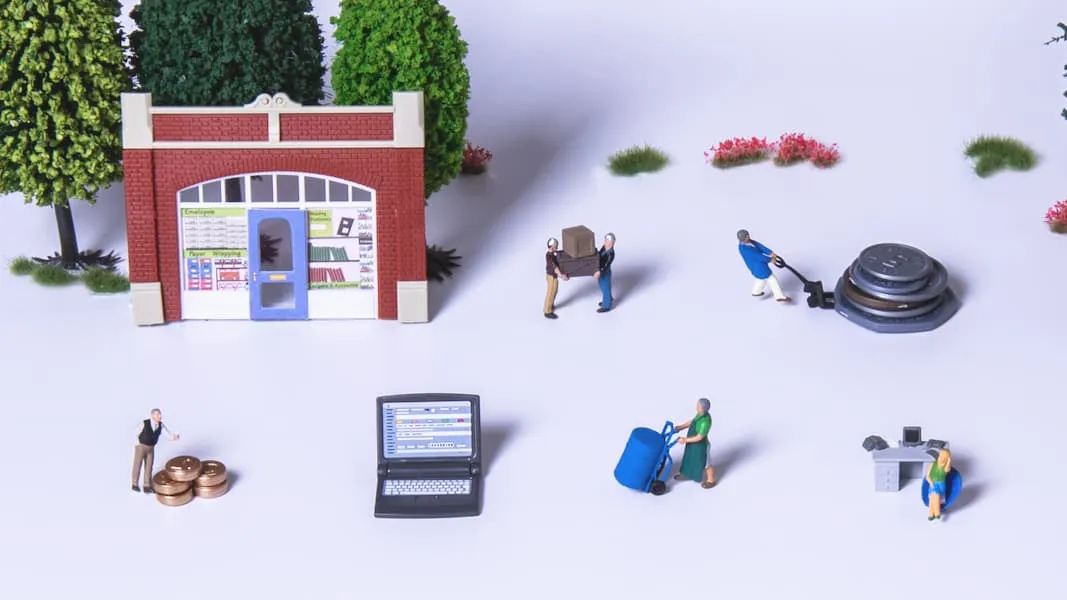Business interruption insurance and covid 19 - Can I claim insurance?
5
min read
Business interruption insurance and covid 19 - Can I claim insurance?





On 20 March, the UK government announced a compulsory closure of all cafes, bars, pubs and restaurants. On 23 March, all non-essential shops were closed. This presents unprecedented challenges for small businesses as many have to adjust or halt their business activity for at least 3 weeks.
During this time of uncertainty, it’s understandably important for small businesses to access the funding they need to keep in good standing for the current economic situation, or for when they can reopen to the public. Claims on business insurance is one source of finance you might be eligible for to help support your business during this period.
How do I know if my business is covered for COVID-19?
Successful COVID-19-related claims will depend on the details outlined in your insurance policy, and the claim itself. When COVID-19 was added to the government’s list of notifiable diseases on 5 March, this did not automatically change business insurance policy coverage.
Below we have collated the most common policies that you might be able to claim on.
Please be aware that COVID-19-related claims on insurance will vary by individual case, depending on your insurer, your policy details and the claim itself. Most insurers will specify the circumstances you can make a reasonable claim concerning COVID-19. To be sure of your eligibility for a claim, read your policy details and make an enquiry to your insurance provider.
{{flexi-loan="/components"}}
Business interruption insurance
Also known as Loss of Profit insurance, this protects your business income if there has been damage to equipment or premises which prevent your business from operating. Typical cover specifies standard risk incidents such as flooding, a fire, storm or other physical damage. This is unlikely to cover business disruptions caused by government response to global pandemics like COVID-19.
Your business might be covered if you have a non-damage business interruption extension on your policy, such as:
- For human disease-related disruptions. You might be eligible to claim where the wording in this policy extension includes infectious diseases or COVID-19, specifically.
- For denial of access, where specific circumstances prevent access to your business such as areas being cordoned off by the authorities.
- An advance bookings cancellation or events cancellation extension. Eligibility on this cover depends on whether your policy entails an exclusion for communicable diseases, extending to “threat” or “fear” of a pandemic.
Public liability insurance
This covers your business against claims made by any member of the public, or clients who have suffered an injury or damage (including their property), in connection to your business. Depending on the individual case, you might be able to make a claim relating to COVID-19 if it can be proven that a third party has been impacted by COVID-19 as a direct consequence of negligence by you or your business.
Employers’ liability insurance
This protects your business if a current or former employee sues for illness or injury caused by their work including while travelling on work. Depending on the individual case, you might be able to make a claim if it can be proven that your employee was impacted by COVID-19 as a direct consequence of avoidable actions taken by you or your business.
What sorts of claims are being successful?
It is important to note that even if you have the business interruption insurance extensions or policies outlined above, you might not be eligible to claim. This is because:
- Most insurance policies will list out specific diseases and viruses they will cover. Since COVID-19 is a relatively new outbreak, few will have this included in their policy cover.
- Most policies require there to be an outbreak of COVID-19 at the business premises or within a specified proximity of the business premises, with all other policy conditions met for you to be able to make a claim.
Insurance provider Macbeth suggests that the most likely successful insurance claims to succeed would be those that:
- Specifically include coverage for COVID-19
- Do not specify the diseases that cause compulsory closure
You might also be considering adding extensions to your existing insurance to cover for COVID-19 related incidents. Business insurance provider Bionic suggests that most insurance companies are excluding COVID-19 in policy cover going forward, and any related claims are unlikely to be successful since COVID-19 is no longer an ‘unforeseeable event’ to be covered by insurance.
{{iwoca-pay-cta="/components"}}
What do I need to make a claim?
Step 1 - Make sure to read over your insurance policy contract in detail. You might also want to check if a claim will involve a payment of an excess, which will be detailed in your documents.
Step 2 - Once you’ve reviewed your insurance policy and believe you’re eligible to make a COVID-19 related claim, get any necessary supporting documents ready for a claims handler to review. This may include any documents to prove your earnings, medical documentation or photographs as evidence of damage to business.
Step 3 - Contact your insurance company and follow their normal claims procedures. This typically includes a form that you can fill out online, by email or over the phone. Once all the details are received and your claim is reviewed, a settlement will be presented for you to receive.
Should I cancel my insurance policy if my business isn’t able to operate?
Your business is still liable to standard risks such as accidents or thefts, even if you aren’t currently operating. So it’s still worth ensuring your business insurance is up to date and covers you against these ‘everyday’ risks during this period of closure. If in doubt, get in contact with your insurance provider or broker.
What sort of support is available if my business is not covered?
If your insurance policy doesn’t cover for interruption caused by COVID-19, we’ve listed other types of financial help for small businesses including details of government support packages for businesses.


How to use payroll loans for small businesses

Business Loans comparison: High Street Banks vs. Alternative Lenders
Comparing the pros and cons of getting a business loan from traditional lenders and alternative finance providers, including how they differ in application processes, speed of funding, rates and flexibility.

Working capital ratio
Discussing the importance of calculating your company’s working capital ratio, what it represents and how to improve the ratio.








